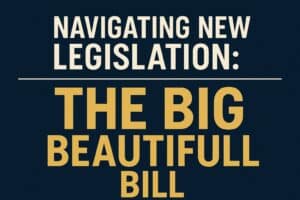In an era where more people are venturing into entrepreneurship, creating businesses, and embracing side gigs for both passive income and as their main source of livelihood, the gig economy has emerged as a thriving ecosystem. This dynamic landscape offers freelancers and side hustlers opportunities to forge their own paths.
At Boyer Financial Services, we recognize the unique financial challenges and opportunities individuals in the gig economy face. In this blog post, we’ll explore the rise of the gig economy and share valuable insights and tips on budgeting, saving, and investing for freelancers.
Understanding the Gig Economy: A Financial Frontier
The gig economy, characterized by short-term or freelance work, presents a dynamic financial landscape. For freelancers and side hustlers, financial stability requires a strategic approach that adapts to the ebb and flow of gigs. Here are key considerations:
Embrace Financial Fluidity:
- Freelancers often experience irregular income flows. Embrace financial fluidity by creating a budget that accommodates variable income. Allocate a portion of each payment to essentials, savings, and discretionary spending.
Build an Emergency Fund:
- Given the unpredictable nature of gig work, having a robust emergency fund is crucial. Aim to set aside three to six months’ worth of living expenses to cushion any financial uncertainties.
Strategic Budgeting for Success:
- Tailor your budget to reflect the cyclical nature of your income. Categorize expenses into fixed (bills that won’t change) and variable (give yourself wiggle room in this, as variable spending could change month-to-month), ensuring that your budget is realistic and flexible.
Tax Planning:
- Freelancers often face unique tax challenges. Stay ahead by setting aside a percentage of each payment for taxes. Consider working with Boyer Financial, as we have tax professionals who can help you navigate the intricacies of self-employment taxes and potentially save you money with various tax planning strategies.
Savings Strategies
Automate Your Savings:
- Set up automatic transfers to a dedicated savings account. This disciplined approach ensures that you consistently contribute to your savings goals, creating a financial safety net.
Diversify Your Income Streams:
- Leverage the gig economy’s flexibility to diversify your income. Consider taking on multiple freelance projects, exploring passive income streams, or investing in side ventures.
Investing Insights
Start Small and Consistent:
- Begin your investment journey with small, consistent contributions. Whether it’s a low-cost index fund or a diversified portfolio, starting early and staying committed is key.
Explore Retirement Investment Options:
- Self-employed individuals have several retirement investment options to choose from. Here are some common retirement products suitable for self-employed individuals:1. Individual Retirement Accounts (IRAs):
– Traditional IRA: Contributions may be tax-deductible, and earnings grow tax-deferred until withdrawal.
– Roth IRA: Contributions are made with after-tax dollars, but qualified withdrawals are tax-free.2. Solo 401(k):
– Also known as a Individual 401(k) or Self-Employed 401(k).
– Allows higher contribution limits compared to traditional IRAs.
– Can include both employee and employer contributions.3. SEP-IRA (Simplified Employee Pension):
– Allows contributions as a percentage of income, making it flexible.
– Contributions are deductible, and earnings grow tax-deferred until withdrawal.4. SIMPLE IRA (Savings Incentive Match Plan for Employees):
– Suited for businesses with fewer than 100 employees.
– Both employers and employees make contributions.5. Solo Defined Benefit Plan:
– Suited for self-employed individuals with high income.
– Contributions are based on actuarial calculations to provide a fixed benefit at retirement.6. Health Savings Account (HSA):
– While primarily for healthcare expenses, HSAs can serve as a retirement savings tool.
– Contributions are tax-deductible, and withdrawals for qualified medical expenses are tax-free.
The gig economy offers unparalleled freedom, but financial success requires intentional planning.
At Boyer Financial Services, we understand the nuances of the gig economy and are here to guide freelancers and side hustlers on their journey to financial prosperity. Embrace the flexibility of gig work while building a solid financial foundation that withstands the ever-changing nature of the freelance landscape. Your financial success is our priority.
—
Important Disclosures:
The opinions voiced in this material are for general information only and are not intended to provide specific advice or recommendations for any individual.







